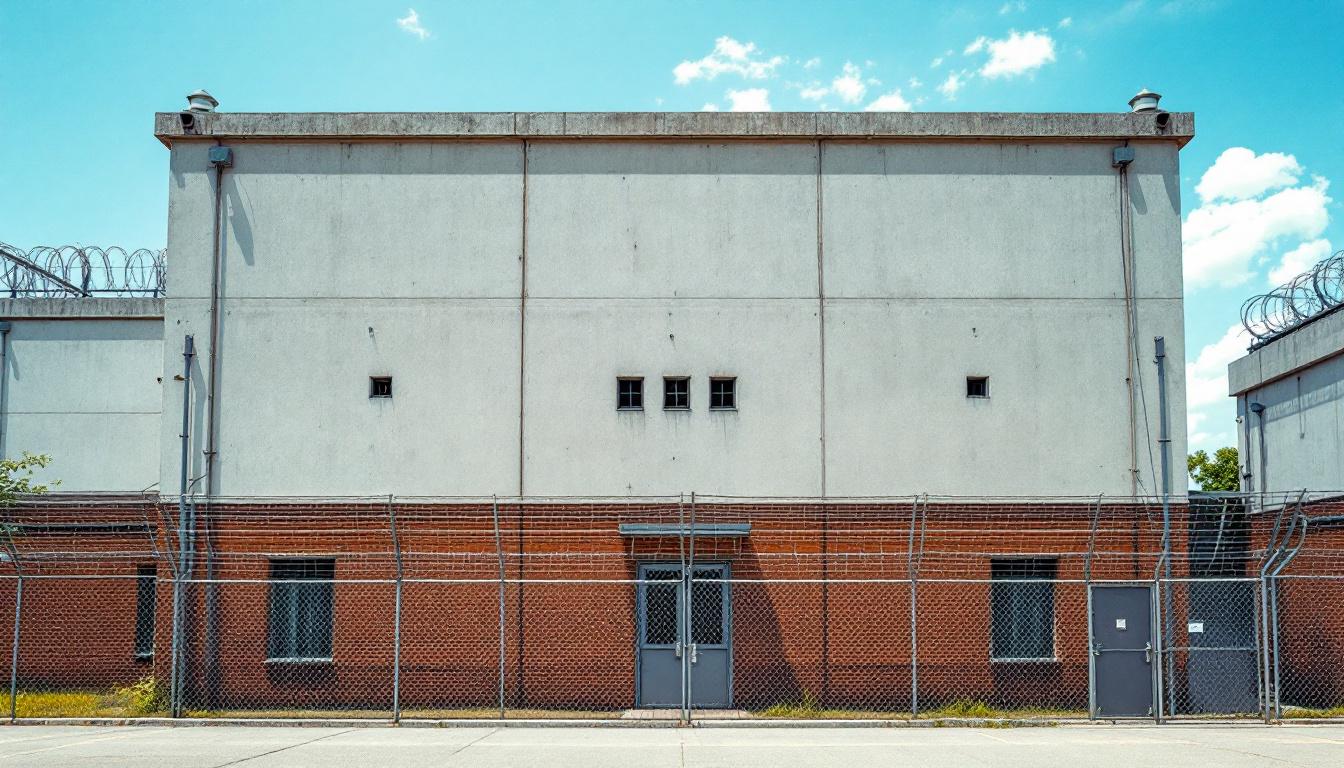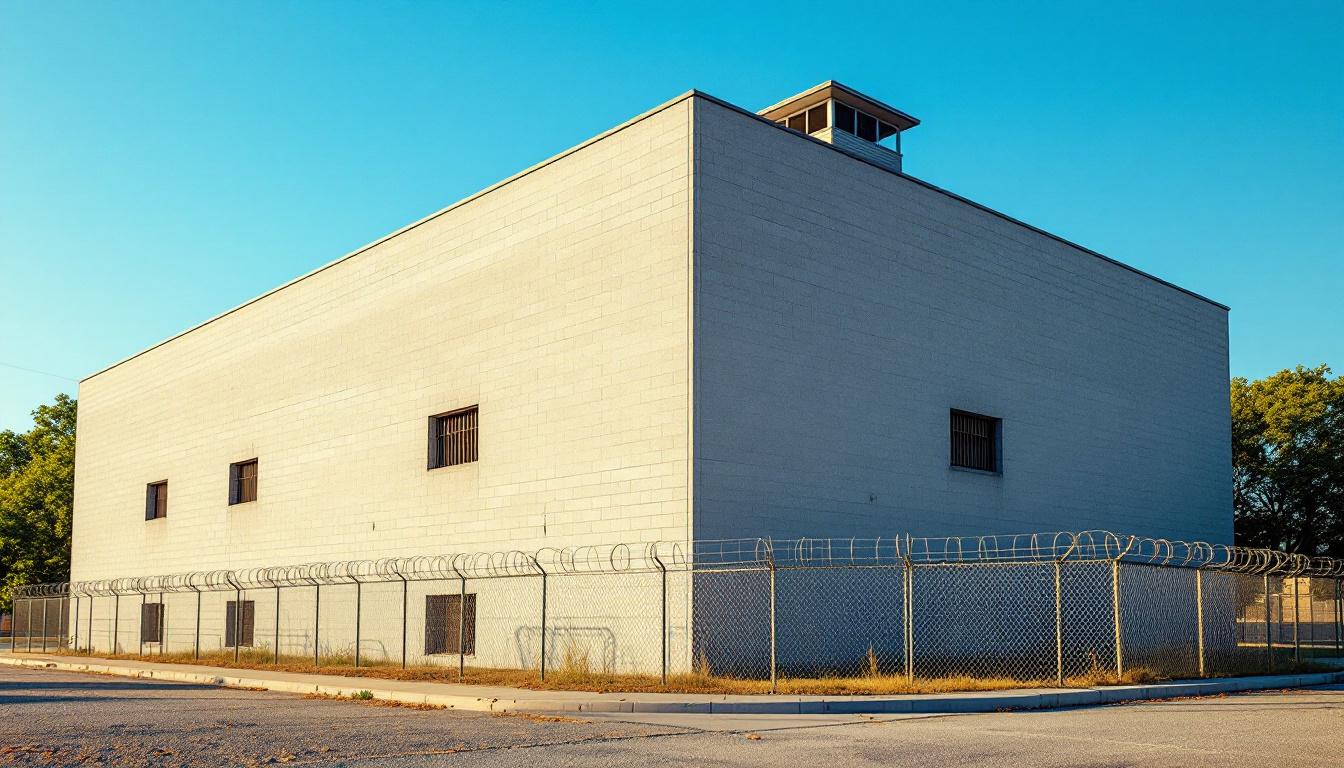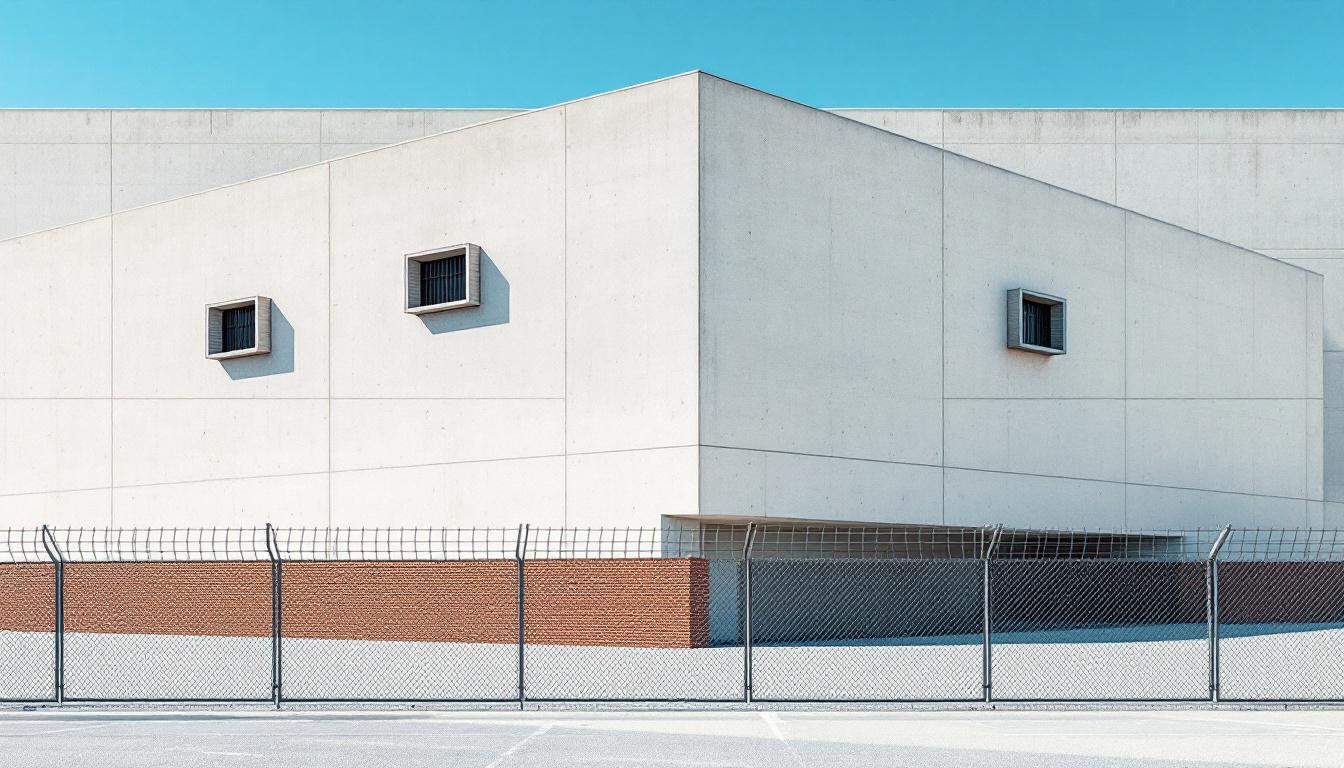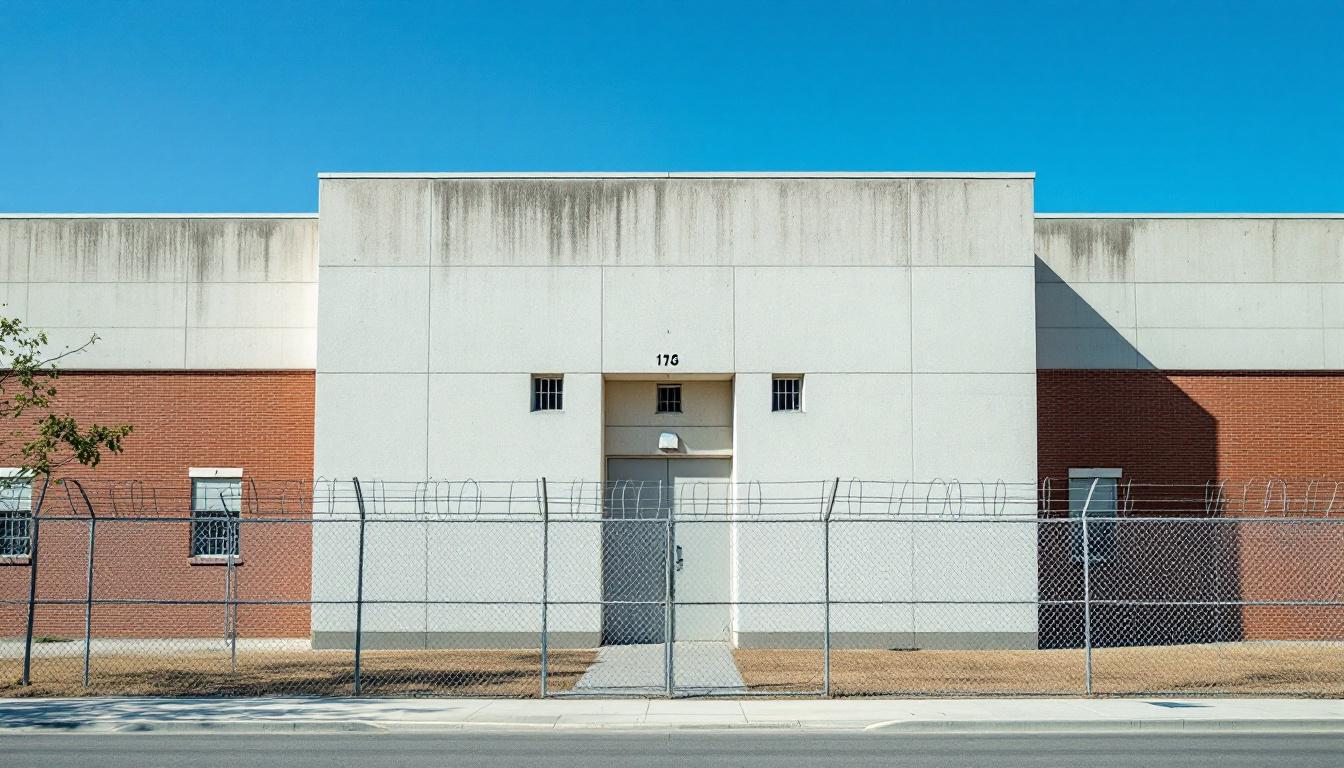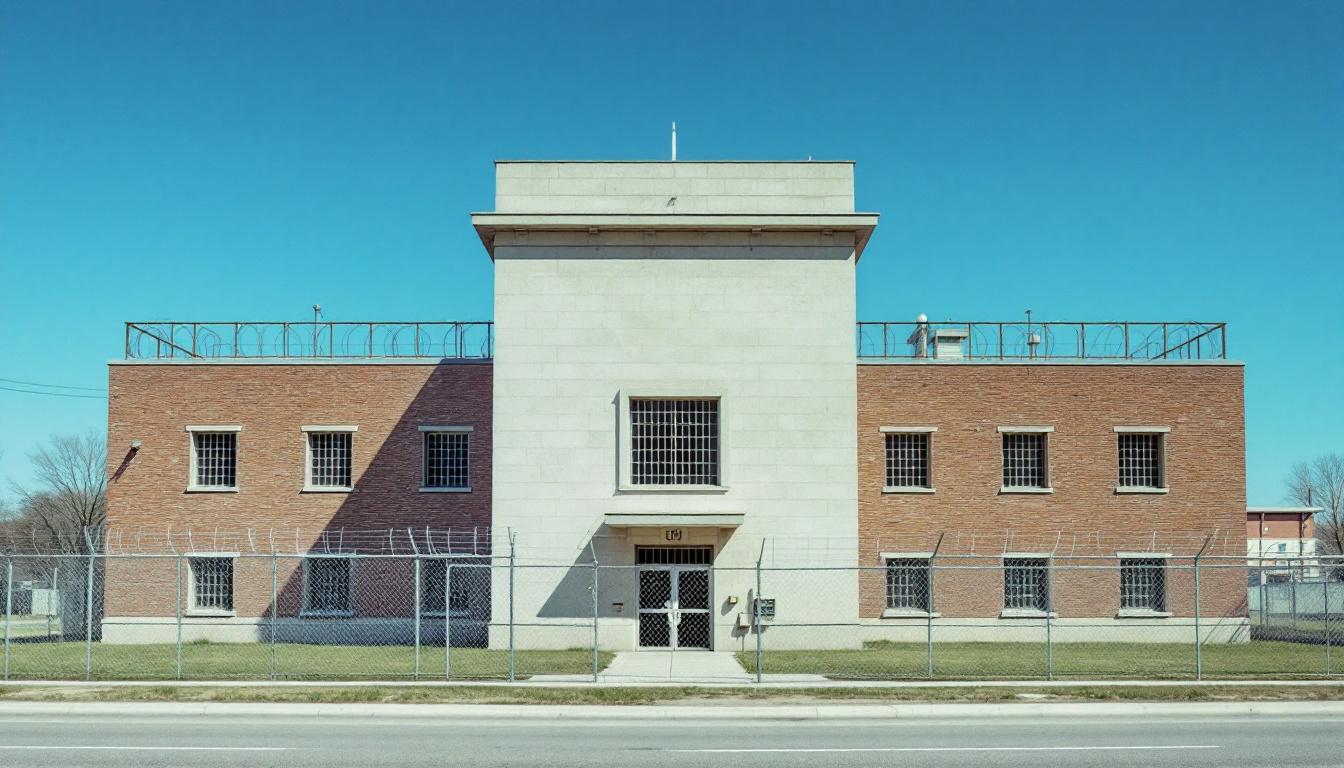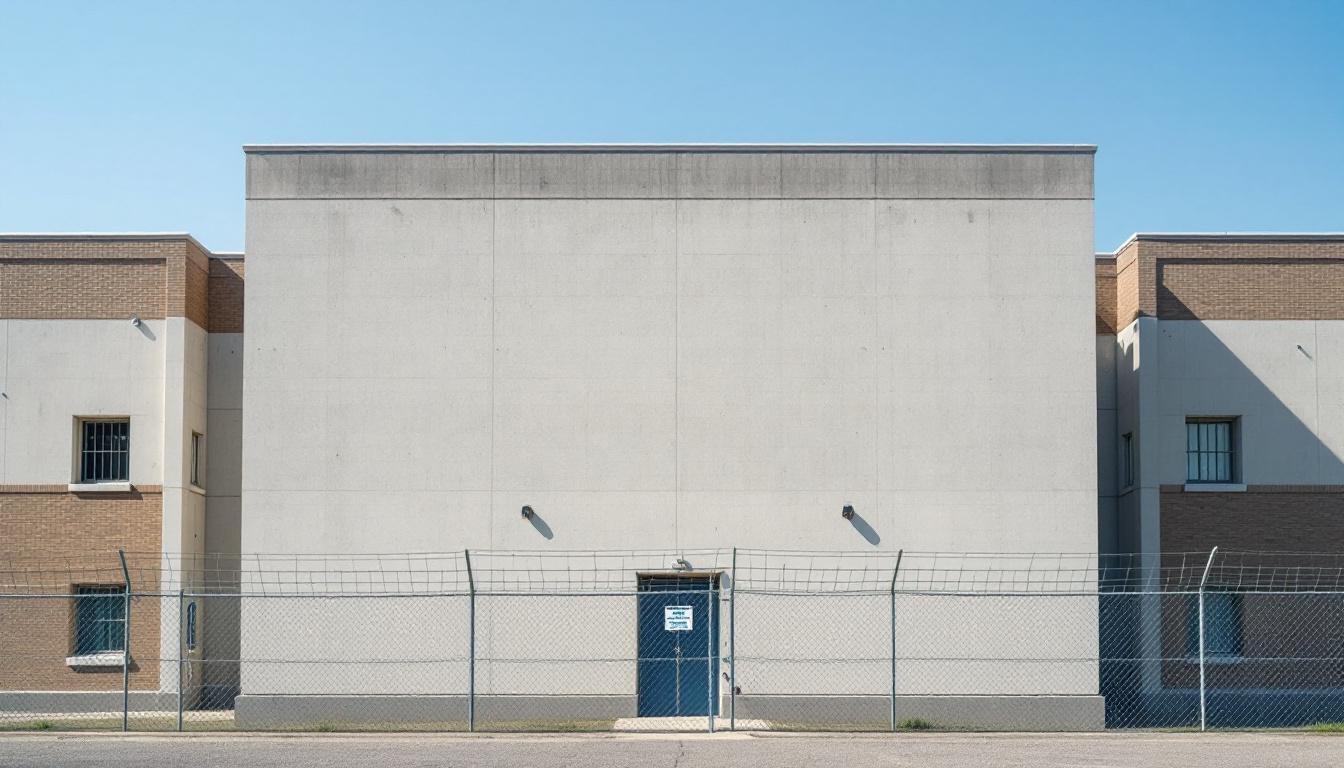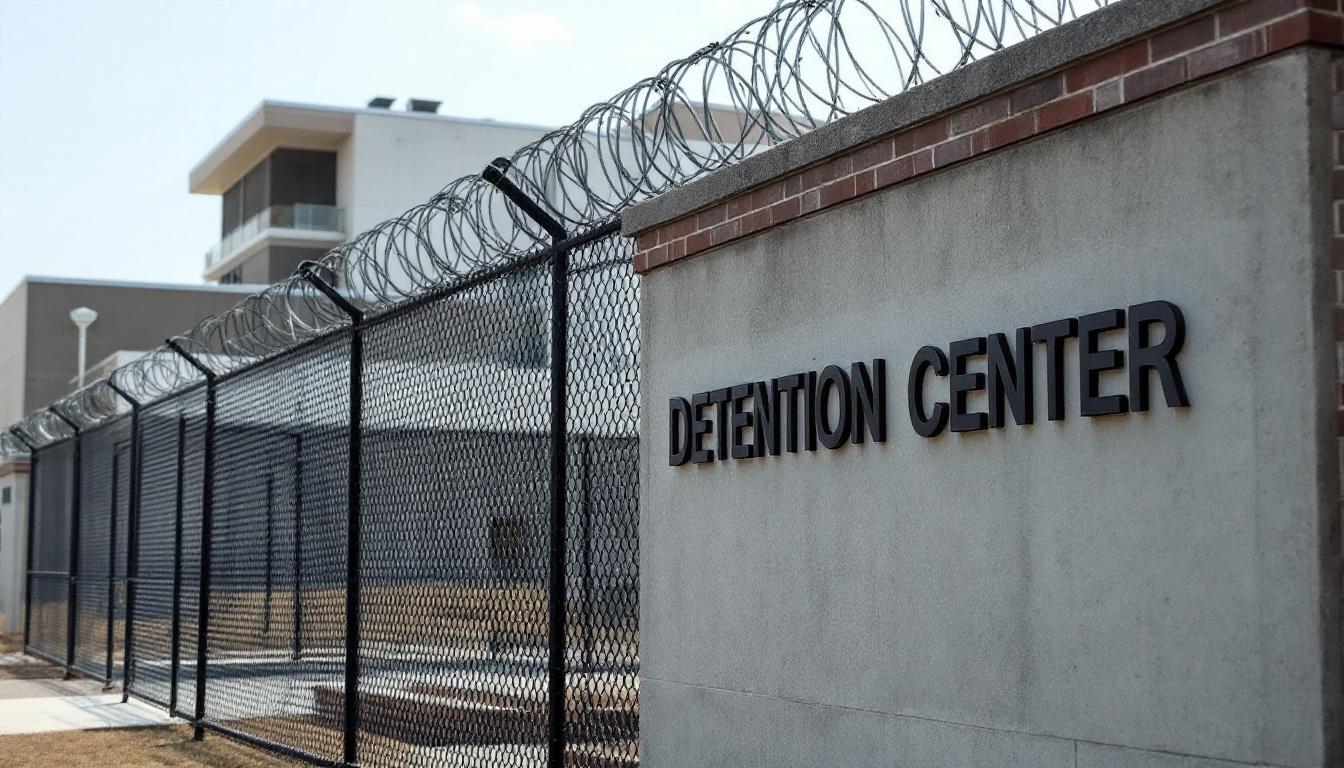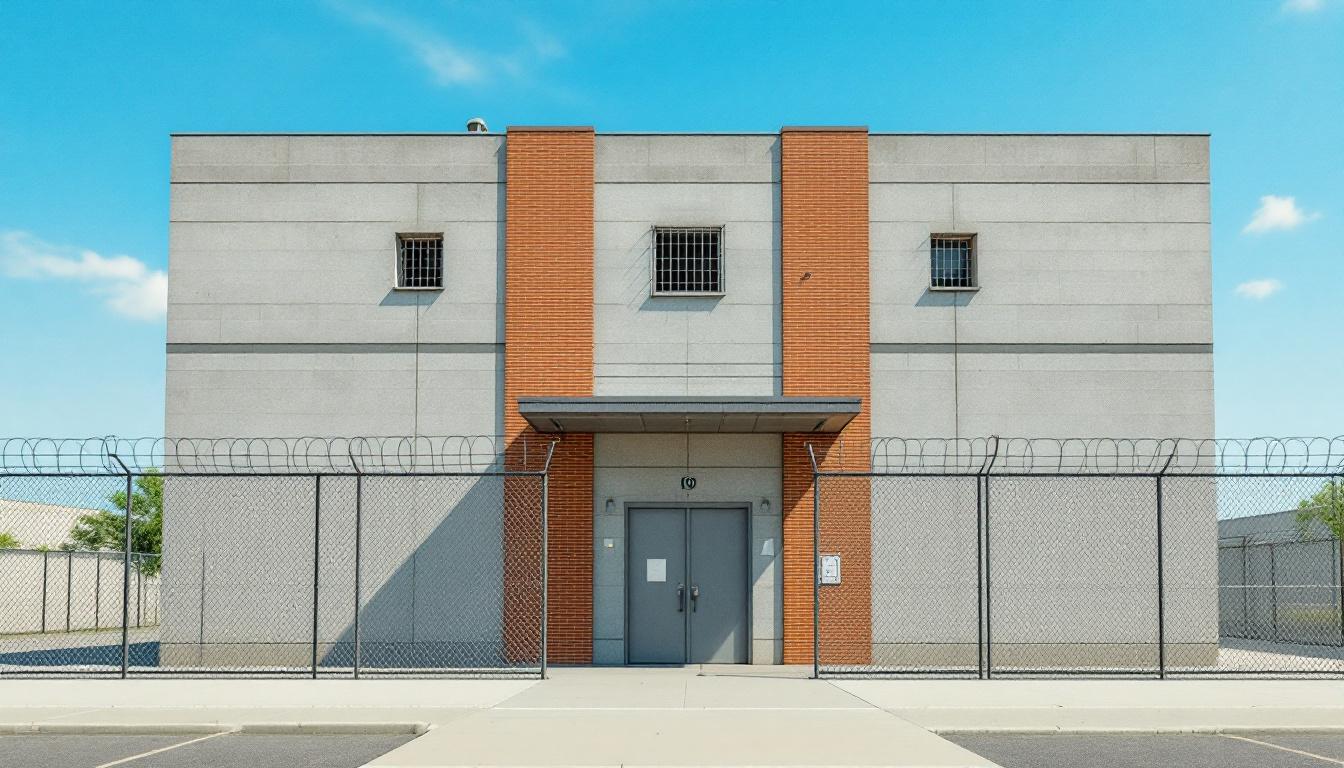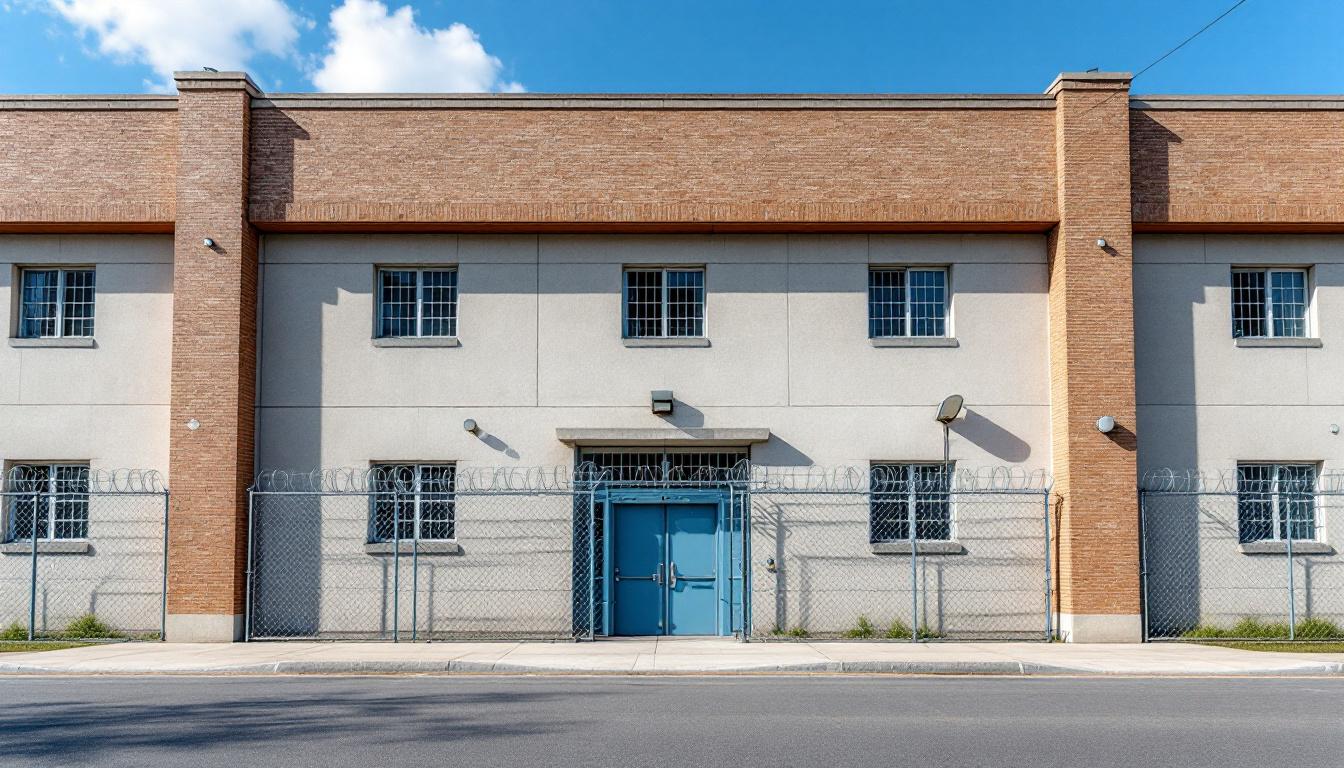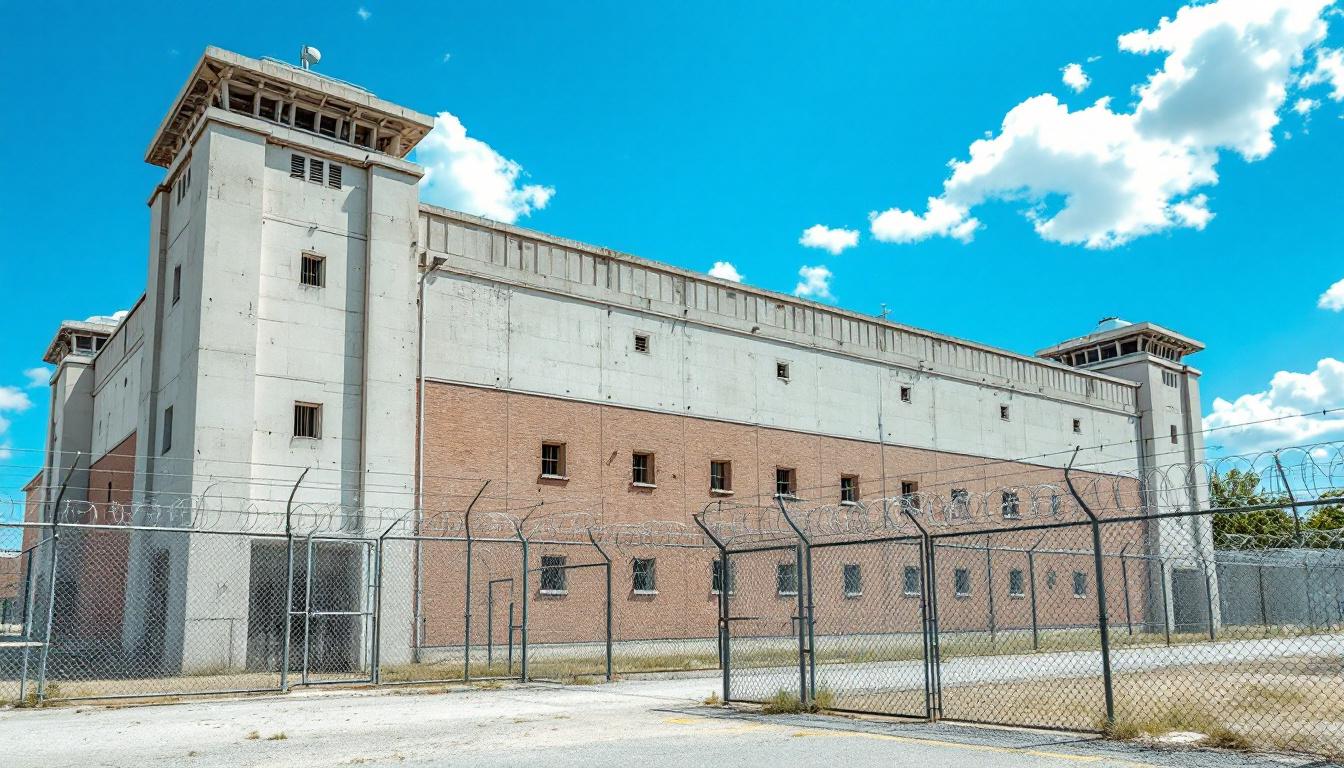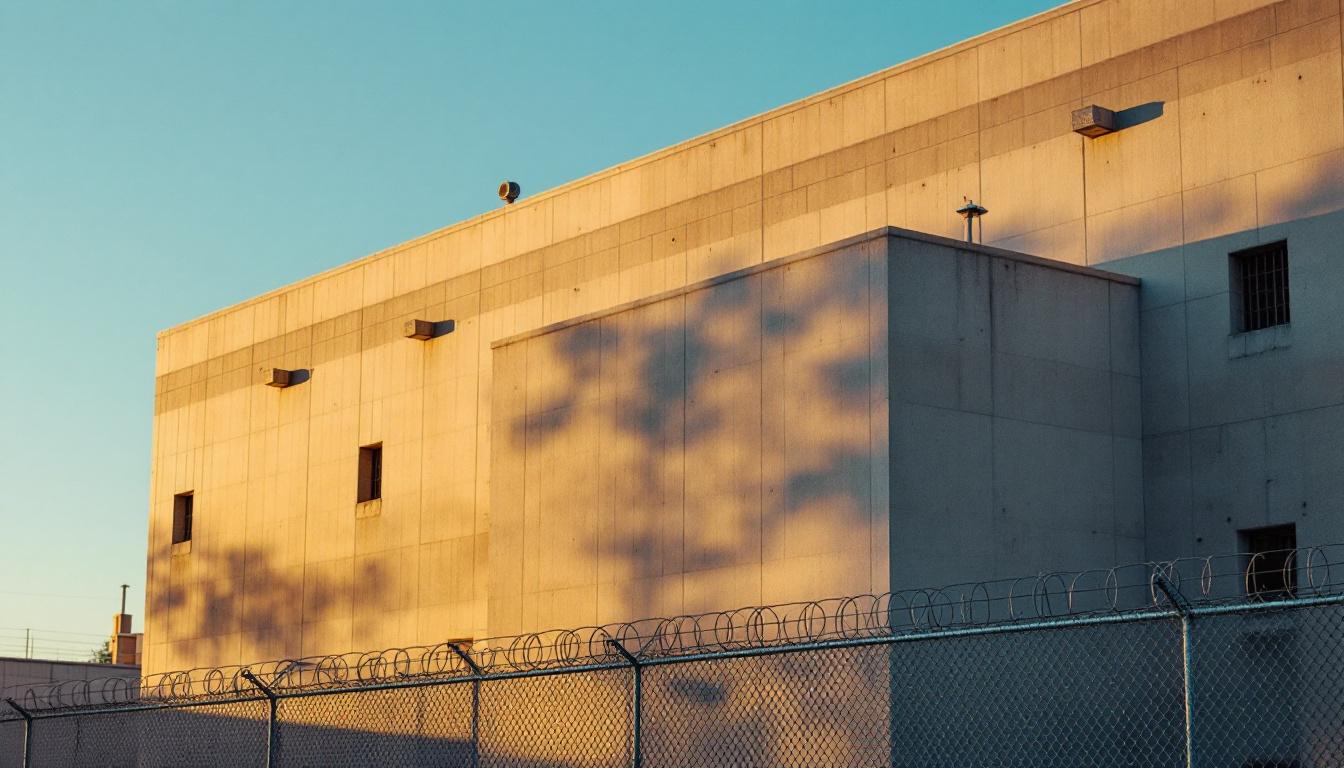
Quick Navigation
How to contact an inmate at Carteret Correctional Center
This comprehensive guide will walk you through how to connect with an inmate at Carteret Correctional Center. Follow the steps below to find an inmate and send letters and photos:
- Search for the inmate using our search tool below
- Create your account or log in to Penmate
- Write your message (up to 6,000 characters)
- Send instantly - inmates receive printed copies daily
Find an Inmate
Search for an inmate to start communicating today
Tip: You can search by first name, last name, or inmate ID number
To contact a person at Carteret Correctional Center start by searching for the person on the official facility website. Perform a search by following these steps:
- Step 1: Enter their first name and last name into the search form and click "Search"
- Step 2: Locate their inmate record
- Step 3: Write down their Inmate ID and any housing information provided
Important! Be sure to enter the person's full name. Nicknames should not be used.
How to Send Messages to Inmates

You can use your phone or computer to send emails, letters, and photos to an inmate. Messages are sent electronically to inmate tablets or kiosks at the facility. If you would like to send a message, start by searching for an inmate at Carteret Correctional Center.
Sending Photos and Postcards

A great way to send love and support to a loved one at Carteret Correctional Center is to send photos and postcards. It only takes a few minutes to send photos from your phone and it makes a huge difference. You can also mail postcards with words of support and inspiration, or design your own postcard for special moments like birthdays and holidays.
Important! Be sure not to send any explicit photos or they may not be approved by the facility. You can also use a photo printing app like Penmate to make sure your photos are printed at the correct size (4x6 or 3x5) and are mailed according to the rules and regulations of Carteret Correctional Center.
Frequently asked questions about Carteret Correctional Center
-
How long does it take to deliver a message?
If you're sending an email message your letter is usually delivered within 24-48 hours. For messages sent via mail you should expect delivery within 3-7 days. All messages will need be approved by Carteret Correctional Center.
-
How much does it cost to send a message to Carteret Correctional Center?
You can send a message free using your phone or mail a message via USPS for the price of a $0.60 stamp and envelope. You can also purchase credits or e-stamps from services starting at $1.99.
-
What services can I use to contact an inmate at Carteret Correctional Center?
Penmate
You can use Penmate to send letters and photos to an inmate from your phone. It's an easy way to stay in touch during your loved one's incarceration. Use the inmate locator to find an inmate's location and contact information, then you can send messages within a few minutes.
Securus messaging
Securus may be another option for communicating with an inmate at Carteret Correctional Center. You can create a friends and family account and purchase credits to send messages. All messages will be reviewed and must be approved by the facility.
JPay
Some county jails and state prisons may support sending messages with JPay. You must register an account with the system, find your loved one, and purchase stamps to send messages. For some locations you can also attach photos.
Smart Jail Mail
You may also check if Smart Jail Mail is available at Carteret Correctional Center. Smart Jail Mail is operated by Smart Communications and has contracted with some state and county jails. After purchasing credits, your messages and photos are sent to the facility, printed out, and then handed out to your loved one.
-
What is the mailing address of Carteret Correctional Center?
Mailing address:
Carteret Correctional Center
1084 Orange St
Newport, NC 28570
Phone: (252) 223-5100 -
What are the visiting hours at Carteret Correctional Center?
Visiting hours at Carteret Correctional Center vary by housing unit and security level. Generally, visits are scheduled on weekends and holidays, with some facilities offering weekday visits. Contact the facility directly at (252) 223-5100 or check their website for the current visiting schedule. Visits typically last 30-60 minutes and must be scheduled in advance.
-
What items are prohibited when sending mail to Carteret Correctional Center?
Prohibited items typically include: cash, personal checks, stamps, stickers, glitter, glue, tape, staples, paperclips, polaroid photos, musical or blank greeting cards, hardcover books, magazines with staples, and any items containing metal or electronics. Only send letters on plain white paper with blue or black ink. Photos must be printed on regular photo paper (no Polaroids). Always check with Carteret Correctional Center for their specific mail policies.
-
How do I send money to an inmate at Carteret Correctional Center?
You can send money to an inmate at Carteret Correctional Center through several methods: 1) Online using JPay, Access Corrections, or the facility's approved vendor, 2) Money orders mailed directly to the facility with the inmate's name and ID number, 3) Kiosks located in the facility lobby, or 4) Over the phone using a credit or debit card. Fees vary by method, typically ranging from $2.95 to $11.95 per transaction.
-
Can I schedule a video visit with an inmate at Carteret Correctional Center?
Many facilities now offer video visitation as an alternative to in-person visits. At Carteret Correctional Center, video visits may be available through services like Penmate, Securus Video Connect, GTL, or ICSolutions. Video visits typically cost $10-20 for 20-30 minutes and must be scheduled in advance. You'll need a computer or smartphone with a camera and reliable internet connection. Contact the facility for their specific video visitation policies and approved vendors.
-
What identification do I need to visit an inmate at Carteret Correctional Center?
All visitors must present valid government-issued photo identification such as a driver's license, state ID, passport, or military ID. Minors must be accompanied by a parent or legal guardian who can provide the minor's birth certificate. Some facilities require visitors to be on the inmate's approved visitation list, which may require a background check. Contact Carteret Correctional Center for specific ID requirements and visitor approval procedures.
-
How can I find out an inmate's release date?
To find an inmate's release date at Carteret Correctional Center, you can: 1) Use the online inmate search tool if available, 2) Call the facility's records department, 3) Contact the inmate's case manager or counselor, or 4) Have the inmate provide this information during a call or visit. For privacy reasons, some facilities only release this information to immediate family members.
Facility Overview
Contact Information
Carteret Correctional Center1084 Orange St
Newport, NC 28570
Phone: (252) 223-5100
Official Website

About Carteret Correctional Center
Community partnerships form the foundation of effective correctional operations at Carteret Corrections Center, NC, where collaborative relationships with local Phoenix organizations help create meaningful pathways for successful reintegration. This NC correctional facility recognizes that lasting change occurs when inmates services extend beyond institutional walls to connect with community resources, educational opportunities, and support networks that can provide stability upon release. Through careful coordination with regional partners, the facility typically works to ensure that individuals have access to programs that may include vocational training, substance abuse counseling, and educational advancement opportunities that align with workforce needs in the Phoenix area and broader North Carolina region.
Security and rehabilitation work hand in hand at this correctional facility, where staff members generally focus on maintaining a safe environment while simultaneously supporting personal growth and skill development. The facility's approach often emphasizes structured daily routines that may incorporate work assignments, educational programming, and therapeutic interventions designed to address underlying issues that contribute to criminal behavior. Located in Phoenix, North Carolina, the center typically serves as an important component of the state's correctional system, providing housing and programming for individuals at various stages of their sentences while maintaining connections to family members and community resources that can support successful transitions back into society.
Programs & Services
Personal growth and skill development form the cornerstone of rehabilitation services at Carteret Corrections Center, where inmates have access to comprehensive programming designed to address both immediate needs and long-term reentry goals. The facility typically emphasizes a holistic approach to rehabilitation, recognizing that successful reintegration requires addressing educational gaps, developing marketable skills, and overcoming personal challenges that may have contributed to incarceration. Through structured programming and consistent support, inmates often gain the tools necessary to build more stable and productive lives upon release.
Educational services may provide foundational learning opportunities, including basic literacy instruction and GED preparation for those seeking to complete their high school education. These academic programs often serve as stepping stones to vocational training opportunities that focus on developing practical, job-ready skills. Vocational training services typically include hands-on instruction in various trades and technical fields, allowing inmates to gain certifications and experience that enhance their employment prospects in the community.
Support services extend beyond traditional academics to include specialized programming that addresses personal development needs. Painting and decorating services may offer inmates creative outlets while teaching valuable maintenance and aesthetic skills. Time management programming typically helps participants develop organizational abilities and planning strategies essential for successful daily living. Also available are substance abuse programs that provide therapeutic intervention for inmates struggling with addiction issues, offering counseling and education designed to support long-term recovery and reduce the likelihood of recidivism.
Daily Life & Visitation
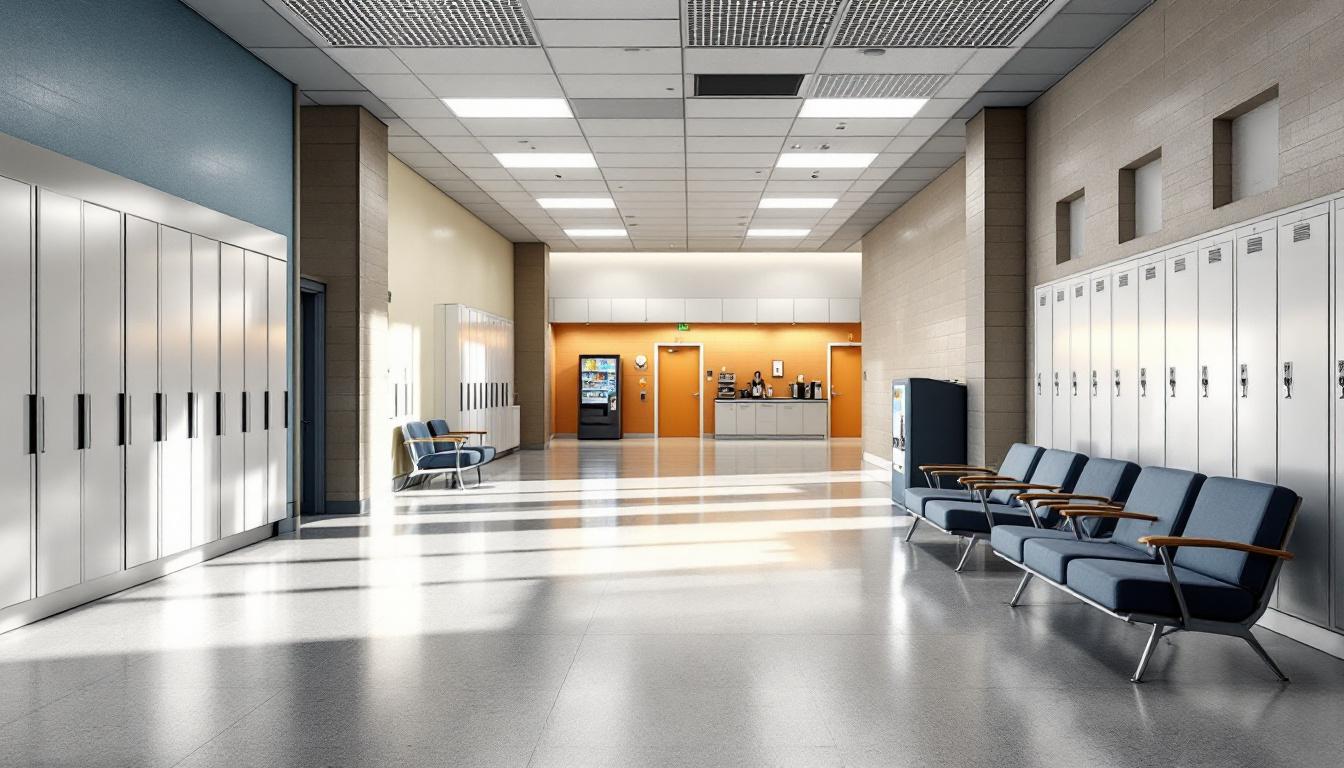
The concrete walls and steel doors of Carteret Corrections Center create a structured environment where inmates must navigate carefully regulated living spaces. Today, inmates consistently follow established routines that begin with early morning counts and progress through scheduled activities. The facility's housing units typically accommodate multiple inmates per cell, with shared common areas that serve as gathering spaces for television viewing and quiet conversation.
Living accommodations generally include basic furnishings such as bunks, storage lockers, and shared bathroom facilities. Inmates usually adapt to limited personal space by organizing their belongings efficiently and respecting unwritten rules about privacy and personal boundaries. Also, the dining hall operates on scheduled meal times, with inmates moving in supervised groups to receive prepared meals that must meet nutritional standards. However, many inmates supplement their diet through commissary purchases when funds are available from family support or facility work assignments.
The facility typically provides structured programming schedules that may include educational classes, vocational training, and substance abuse counseling. Recreation opportunities often include outdoor exercise periods, indoor gymnasium access, and library services that help inmates maintain physical and mental well-being. Also, visitation policies generally allow approved family members and friends to maintain contact through scheduled visits, phone calls, and written correspondence. Work assignments within the facility usually provide inmates with purposeful daily activities while helping them develop job skills, whether in food service, maintenance, or other operational areas that keep the institution functioning.
Ready to Connect?
Start communicating with your loved one today
Search for an Inmate
